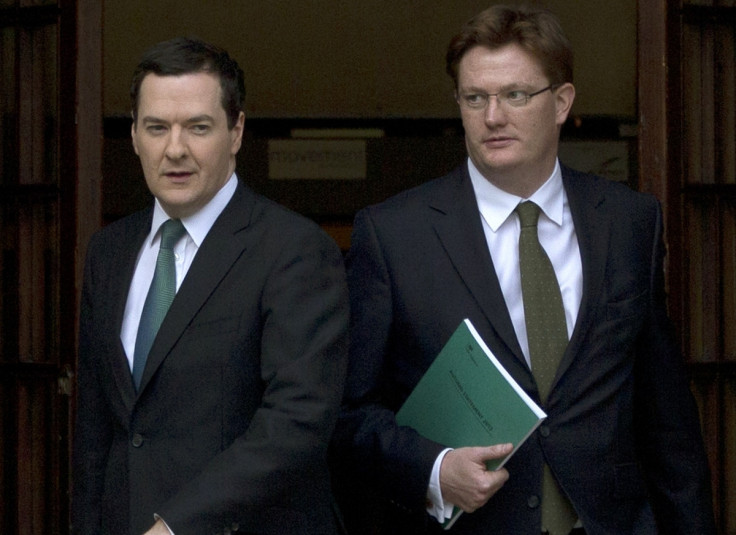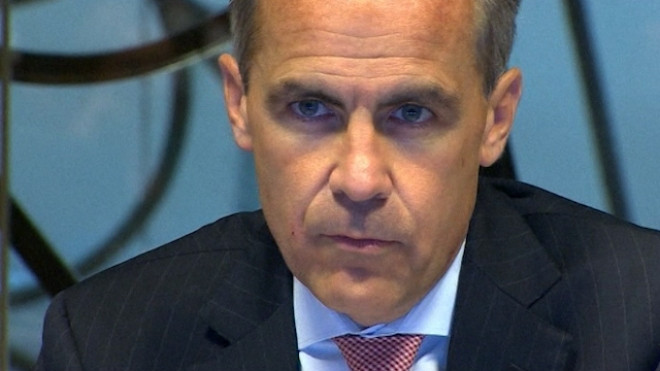Three UK Economy Stories that will Dominate in 2014

As we enter 2014, IBTimes UK looks at three economic stories that may dominate the headlines during the year.
Cost of Living
Labour has sought to drag the pre-2015 general election battleground to what it has dubbed the "cost of living crisis" as consumers wade through a sticky mixture of falling real-terms wages, soaring household bills, and cutbacks to the government's welfare bill.
Chancellor George Osborne has hailed his austerity programme – public spending cuts to erase the structural deficit in the Treasury's finances – as a success given the UK's emerging economic recovery.
However, wages will not rise meaningfully until 2015, according to forecasts by the Office for Budget Responsibility (OBR), the UK's independent fiscal watchdog.
And household bills are subject to the volatile commodities markets, such as sudden leaps in the rise of food and fuel prices.
As the election nears, whether or not people are feeling the recovery in their pockets will be a central theme of 2014.
Unemployment Rate
Bank of England Governor Mark Carney's first move as the UK central bank chief was to introduce the so-called "forward guidance" policy.
This involved telling markets that the Bank of England would not consider raising its base rate from the record-low 0.5% until the UK unemployment fell below a 7% threshold. At the time in August 2013, the Bank's forecasts suggested this would take three years.
Now the UK appears to be in a recovery phase it looks like the threshold will be reached more quickly than expected, meaning an interest rates hike could be sooner. In November the Bank of England slashed its forecast to say unemployment may hit 7% at the end of 2014.

Official figures from the Office for National Statistics (ONS) shows the unemployment rate falling to 7.4% in the three months to October.
However, 7% is only a threshold, not a trigger. The Bank of England may well decide hiking rates so early would choke off the UK recovery and choose to delay, even if the threshold is met earlier than expected.
As we enter 2014, markets and mortgage holders with repayments linked to the base rate will nervously watch the path of unemployment and movements from monetary policymakers.
House Prices
Help to Buy, the government's controversial mortgage stimulus package, will really take hold of the UK housing market in 2014.
House prices in every single region have been rising as residential mortgages become easier to get hold of from risk-averse lenders, who have chopped deposit requirements and slashed interest rates.
The government guarantees under Help to Buy – where for a small commercial fee taxpayers will underwrite a mortgage – will kick in from January.
Proponents of the scheme say there is enough slack in the housing market in the wake of the financial crisis to cope with Help to Buy.
They argue the bubble risks are offset by the scheme's three-year lifespan and the cancellation of mortgage support under a separate credit easing initiative, the Bank of England's Funding for Lending, which has taken some of the pressure off.
However critics point to the sever dearth in new housing supply, which cannot keep pace with soaring demand. They urge caution over house prices rising so high while earnings are in real terms decline, pushing home values so far away from incomes.
This leaves many particularly exposed to an interest rate hike by the Bank of England, a move that runs the risk of pushing some into default.
Business Secretary Vince Cable has called for a review of Help to Buy because it was "conceived in very different circumstances".
Expect the housing recovery – or bubble – to accelerate in 2014.
© Copyright IBTimes 2025. All rights reserved.






















